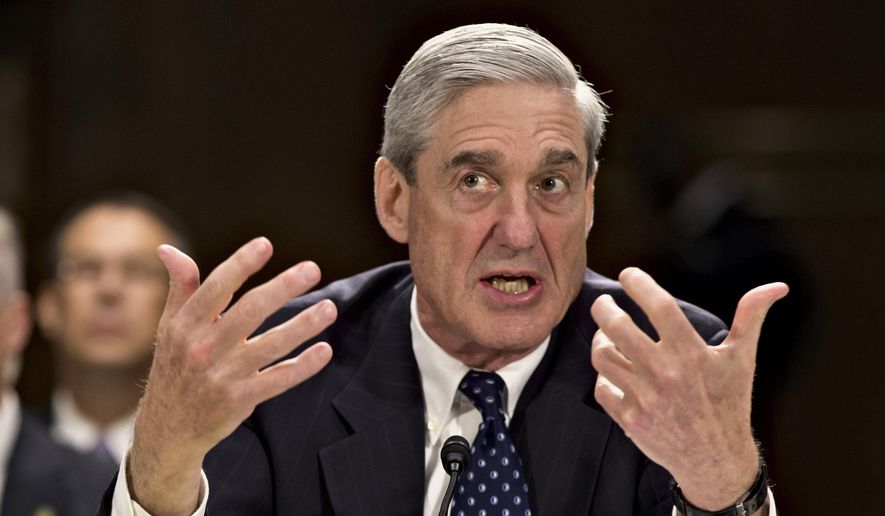Newly appointed special counsel Robert Mueller’s investigation of Russian meddling in the 2016 presidential election will likely hamper Congress’ ability to conduct parallel probes, according to senators and former FBI officials.
Emerging from a closed-door briefing Thursday with Deputy Attorney General Rod Rosenstein, Sen. Lindsey Graham said he came away with the understanding that Mr. Mueller’s probe will be treated “as if it may be a criminal investigation.”
That means congressional committees might have a tough time getting witnesses to testify or obtaining access to other evidence.
“I find it hard to subpoena records of somebody, like Mr. Flynn, who may be subject to criminal investigation because he has a right not to incriminate himself,” Mr. Graham, South Carolina Republican, said of fired National Security Adviser Michael Flynn. “As to Mr. Comey, the former director of the FBI, coming before the committee, if I were Mr. Mueller, I would jealously guard the witness pool.”
Mr. Rosenstein announced last week the appointment of Mr. Mueller, who served as the FBI director for 12 years, as special counsel in the probe.
Former FBI agents who worked under Mr. Mueller expect he will try to limit the extent to which others talk publicly about the investigation, including former FBI director James B. Comey, whose own firing and memos about Mr. Trump now appear to be a potential aspect of the case.
Mr. Comey agreed Friday to testify before the Senate Intelligence Committee, a hearing that will be scheduled after the Memorial Day holiday. It’s unclear how much Mr. Comey will reveal during testimony about his interactions with the president, but the timing of the hearing could be meant to give the special counsel’s team time to get their own investigation up and running.
“If I’m Bob Mueller, I’m looking at the Jim Comey memo as part of my investigation: Was there an attempt to obstruct?” said former assistant FBI director Ron Hosko, the current president of the Law Enforcement Legal Defense Fund. “I’m looking at Jim Comey as a witness and his reports as evidence, so I’d be inclined to try and shut that down or try to understand first what he intends to say.”
The House and Senate intelligence committees are leading the investigatory charge on Russia, but a smattering of other panels — including the Senate Judiciary Committee and its subcommittee on crime and terrorism, the House Oversight and Government Reform committee, the Senate Foreign Relations Committee and the Senate Armed Services Committee — also have opened related probes.
Former FBI officials who worked under Mr. Mueller say members of Congress may have to adjust their expectations when it comes to the matter of public disclosures about the status of the investigation, as it’s in Mr. Mueller’s nature to hold information about an ongoing probe close to the chest.
“His philosophy for the bureau is ’always under the radar,’” said Stephanie Douglas, a former executive assistant director for national security at the FBI who retired in 2013.
Mr. Graham agreed that the decision to appoint a special counsel will limit the degree of information about the investigation that is publicly disclosed.
“The biggest legal change seems to be that Mr. Mueller is going to proceed forward with the idea of a criminal investigation versus a counterintelligence investigation,” the senator said. “Appointing a special counsel has created, I think, a dynamic for Congress that is going to have to be very leery of crossing into Mr. Mueller’s lane because of the possibility of a criminal investigation.”
Given the option to brief Congress or make public announcements on the probe, Ms. Douglas expects Mr. Mueller will be discreet but thorough, and will stay away from the limelight as much as possible.
“I’m sure there is going to be a certain amount of pressure on him on keeping people up to date, which I doubt he is going to want to do,” Ms. Douglas said.
• Andrea Noble can be reached at anoble@washingtontimes.com.




Please read our comment policy before commenting.